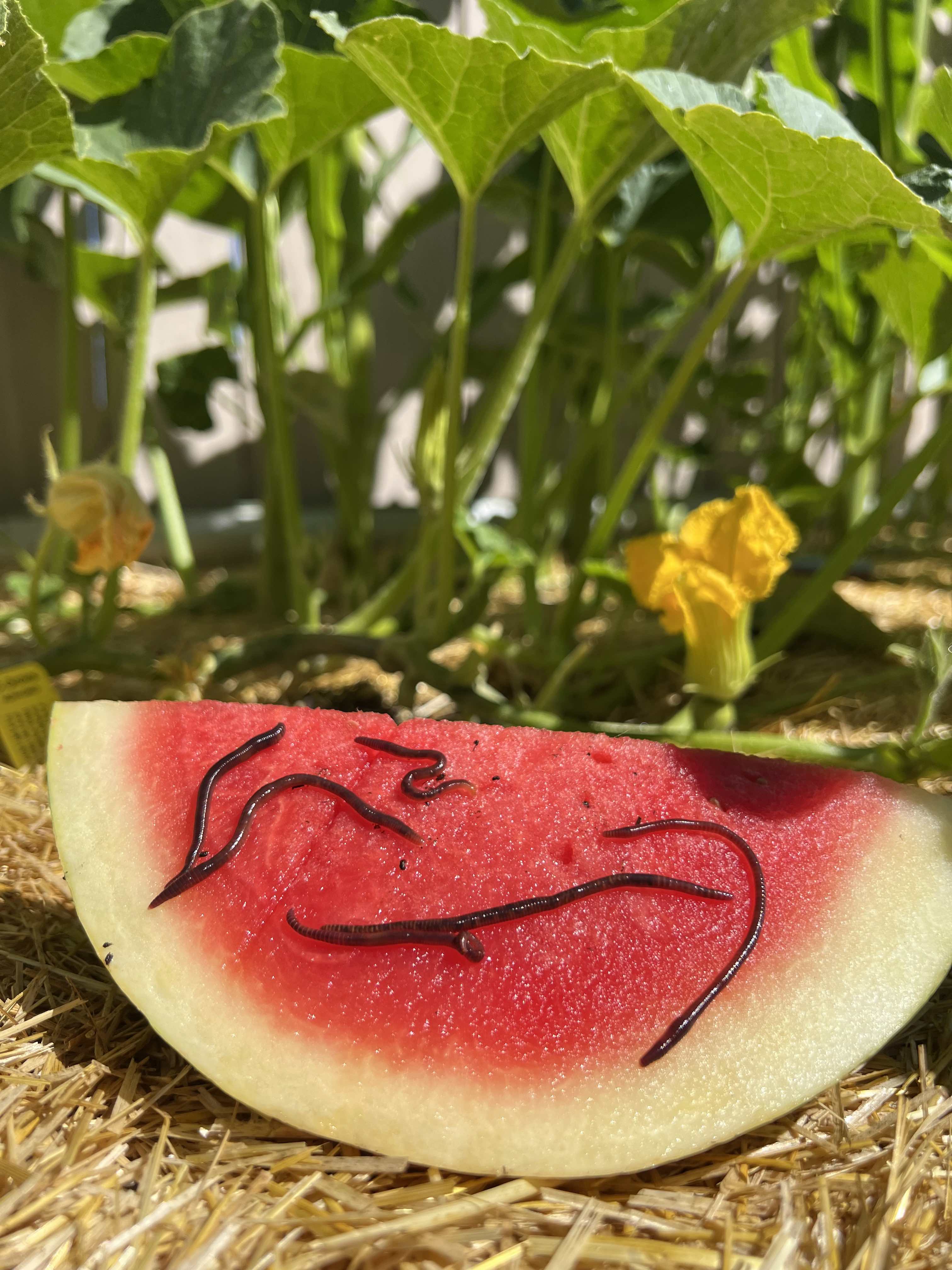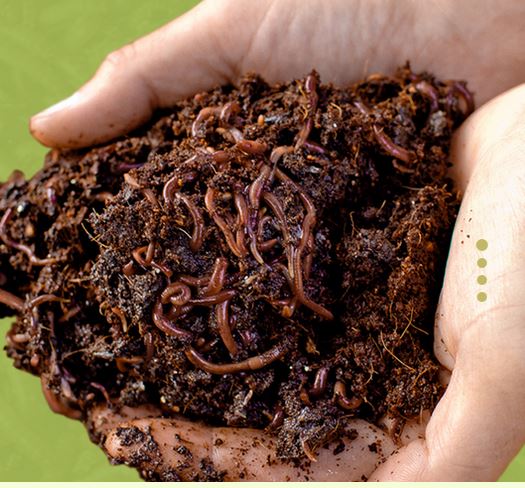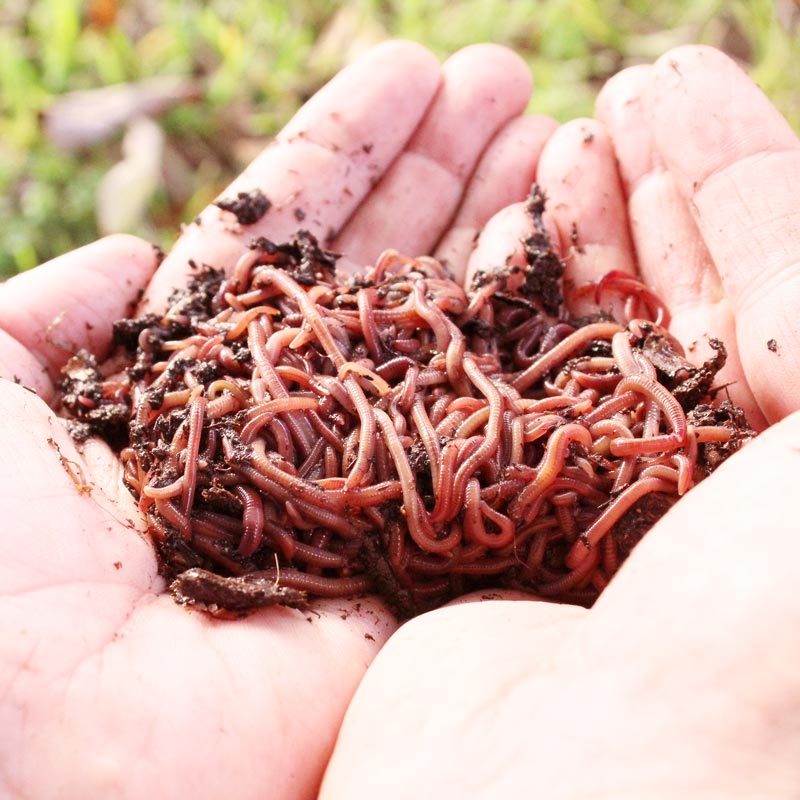Red Wiggler Worms - Effective Decomposers for Your Garden Compost Container
Red Wiggler Worms - Effective Decomposers for Your Garden Compost Container
Blog Article
Red Wiggler Worms Demystified: Opening the Tricks of Vermiculture for Greener Living and Nutrient-Rich Soil
In the world of lasting techniques for improving dirt quality and promoting eco-conscious living, red wiggler worms play a crucial yet commonly overlooked function. These humble animals have the remarkable ability to transform organic waste right into nutrient-rich castings that function as a potent all-natural plant food. By diving right into the globe of vermiculture, one can uncover a wide variety of advantages that expand far beyond standard composting methods. Recognizing the intricacies of caring for these worms, optimizing their atmosphere, and using their spreadings can result in a greener way of living and healthier dirt for plants to flourish.
The Function of Red Wiggler Worms
Red Wiggler worms play an essential role in composting systems by effectively damaging down organic matter right into nutrient-rich spreadings. These voracious eaters take in a selection of organic products, such as kitchen scraps, lawn waste, and paper products. As they feed, the worms' digestion procedures damage down the natural matter into a penalty, dark, and nutrient-dense product recognized as worm castings or vermicompost.
The castings created by Red Wiggler worms are very helpful for soil health and wellness and plant development. They are rich in essential nutrients like phosphorus, potassium, and nitrogen, which are important for sustaining healthy and balanced plant growth. Furthermore, worm spreadings include valuable microorganisms and enzymes that aid enhance soil framework, boost water retention, and boost nutrient uptake by plants.
Benefits of Vermicomposting

In addition, vermicompost, the nutrient-rich end item of vermicomposting, functions as a superb natural plant food and dirt conditioner. It enhances soil framework, improves dirt oygenation, and increases soil wetness retention. These residential or commercial properties add to much healthier plants with stronger root systems and much better resistance to illness and insects. Vermicompost also enriches the soil with vital nutrients like nitrogen, potassium, and phosphorus, promoting plant growth and general soil fertility.
Additionally, vermicomposting supports sustainable horticulture methods by giving a chemical-free and natural alternative to synthetic fertilizers. Red Wiggler Worms. This eco-friendly strategy not just enhances the dirt yet additionally helps in reducing reliance on damaging chemicals, advertising a greener and extra sustainable way of gardening
Establishing a Worm Bin
When developing a worm bin for vermicomposting, appropriate setup is vital to make sure the success of the composting process. The first action in establishing up a worm bin is selecting an appropriate container.
After adding the bed linen, introduce the red wiggler worms to the bin. It is recommended to begin with a handful of worms and progressively boost as they multiply. The worms ought to after that be supplied with food scraps such as fruit and veggie peels, coffee grounds, and eggshells. It is necessary to prevent adding meat, dairy, oily, or salty foods to protect against bring in parasites and producing unpleasant smells.
Regularly check the wetness levels and temperature level in the worm container to make sure ideal problems for the worms. With correct arrangement and maintenance, the worm container will efficiently transform organic waste into nutrient-rich garden compost for your plants and garden.
Gathering Worm Castings
To efficiently accumulate nutrient-rich worm spreadings from your vermicomposting system, a methodical harvesting approach is vital. When it comes time to collect the worm spreadings, there are a few key steps to comply with to ensure a successful process.

Troubleshooting Common Issues
Identifying and resolving usual difficulties that might occur throughout the vermicomposting process is essential for keeping a efficient and healthy worm container. One common problem that vermicomposters encounter is overfeeding. Adding excess food scraps can bring about an accumulation of dampness and acidity in the worm bin, potentially hurting the worms. To stop this, feed the worms in small amounts, making certain that the food scraps are sufficiently broken down before adding a lot more. Another problem is undesirable smells emanating from the worm bin. Foul scents indicate anaerobic conditions, commonly brought on by overwatering or poor air flow. To fix this, readjust the wetness levels by including completely dry bedding materials like shredded newspaper or cardboard and rise aeration by turning the bed linens consistently.
Furthermore, if the worm populace is declining or the worms show up unhealthy, maybe because of environmental stressors such as severe temperatures or pH degrees. Monitoring these aspects and making required modifications is vital for the wellness of the worms. By troubleshooting these common concerns promptly, vermicomposters can make certain a smooth and successful vermicomposting process while maintaining a growing worm populace.

Verdict
In conclusion, red wiggler worms play an essential function in vermiculture by damaging down natural matter into nutrient-rich dirt. Establishing up a worm container is essential for successful vermiculture, and gathering worm spreadings offers useful compost for horticulture.
As they feed, the worms' digestion processes damage down the natural matter right into a penalty, dark, and nutrient-dense product known as worm castings or vermicompost.
The castings created by Red Wiggler worms are very valuable for soil health and wellness and plant development. Adding excess food scraps can lead to a buildup of moisture and acidity in the worm bin, possibly damaging the worms.Furthermore, if the worm population is declining or click to investigate the worms show up harmful, it might be due to environmental stressors such as severe go to this web-site temperature levels or pH degrees. Setting up a worm bin is necessary for effective vermiculture, and gathering worm castings supplies useful garden compost for horticulture.
Report this page